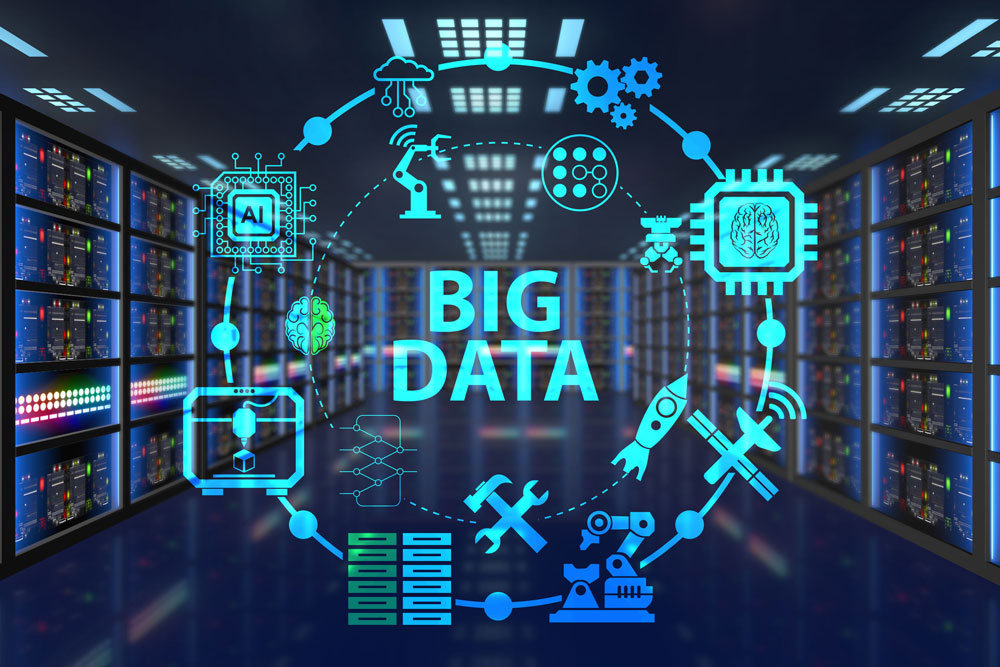The Role of Big Data in Modern Business: From Analysis to Predictions
Author: София Иванова

In recent decades, the term "big data" has become synonymous with advanced technologies and innovations in business. This concept encompasses vast amounts of data that are too large and complex to be processed by traditional methods. From financial analysts to marketers and engineers to strategists, everyone is beginning to realize the value of big data in shaping decisions and optimizing business processes. In this article, we will look at how big data affects modern business, from its collection and analysis to predicting future trends and consumer behavior.
Big Data Basics
Definition and characteristics
Big data can be defined as arrays of information that require special tools and technologies to store, process, and analyze. Key characteristics of big data include:
- Volume: The amount of data that is constantly growing.
- Velocity: The rate at which data is generated and received.
- Variety: Different types of data, including text, number, video, audio, etc.
- Veracity: The accuracy and reliability of the data.
- Value: The usefulness of information for decision-making.
These characteristics make traditional databases and analytical methods insufficient to work with big data.
Applying Big Data to Business
1. Analysis and optimization
Big data analytics allows companies to optimize their operations. For example, retailers can use data on shopping habits to improve shelf placement and promotions. Analyzing process data can identify bottlenecks and opportunities for efficiency improvements.
2. Personalization
Modern companies are actively using big data to create personalized experiences for their customers. By using data on user behavior, preferences, and purchase histories, companies can offer products and services that are most relevant to individual needs and interests. For example, video streaming platforms and online retailers use recommendation algorithms to suggest content to users that they are most likely to want to watch or buy.
3. Forecasting and prediction
One of the most powerful applications of big data is to predict future events and trends. Machine learning models and analytical tools can process historical data and identify patterns that help predict product demand, predict financial trends, and even prevent fraud. For example, insurance companies can use data to assess risk and generate more accurate insurance premiums.
4. Improving customer service
Big data also plays a key role in improving customer service. Analyzing customer feedback and complaints, their behavior on the site, and interaction with support allows companies to identify problems and improve the quality of service. Analytics tools can provide solutions to common problems and streamline maintenance processes.
Big Data Technologies and Tools

1. Data Warehouses and Databases
Modern storage technologies such as Hadoop and Spark allow you to process and analyze vast amounts of information. These tools provide scalability and efficiency when working with big data.
2. Analytics and Machine Learning
Data analytics tools such as Apache Hive and Apache Pig, as well as machine learning libraries such as TensorFlow and PyTorch, allow you to extract insights and build predictive models. The use of machine learning and artificial intelligence algorithms allows you to create more accurate forecasts and improve analytical reports.
3. Data visualization
Visualization tools are important for interpreting and presenting the results of big data analysis. Platforms such as Tableau and Power BI help business analysts and executives quickly understand complex data and make informed decisions based on visual reports.
Problems and challenges
While big data provides many benefits, its use comes with a number of challenges and challenges:
- Privacy and security: The processing and storage of large amounts of data requires security and protection of personal information. Laws and regulations regarding data protection, such as GDPR, must be complied with.
- Data quality: Data quality can vary substantially, and inaccurate or incomplete data can lead to erroneous conclusions and decisions. It is important to develop strategies for data cleansing and verification.
- Talent Skills: Working with big data requires skilled professionals with skills in analytics, programming, and statistics. A shortage of such specialists can be an obstacle to the successful implementation of big data technologies.
The Future of Big Data in Business
The future of big data in business is associated with the further development of technologies and methods of their analysis. Given the rapid growth in data volumes and constant innovation in artificial intelligence, we can expect that the possibilities for the use of big data will expand. The ability to work effectively with big data will be a key competitive advantage for companies in a wide variety of industries.
Conclusion
Big data has already become an integral part of modern business, providing powerful tools for analysis, prediction, and optimization. Their impact on business decision-making and strategic planning can hardly be overestimated. However, the successful use of big data requires solving many technical and organizational problems. In the future, with the development of technology and the improvement of analysis methods, big data will continue to play a key role in the formation and development of business.
Popular Articles

